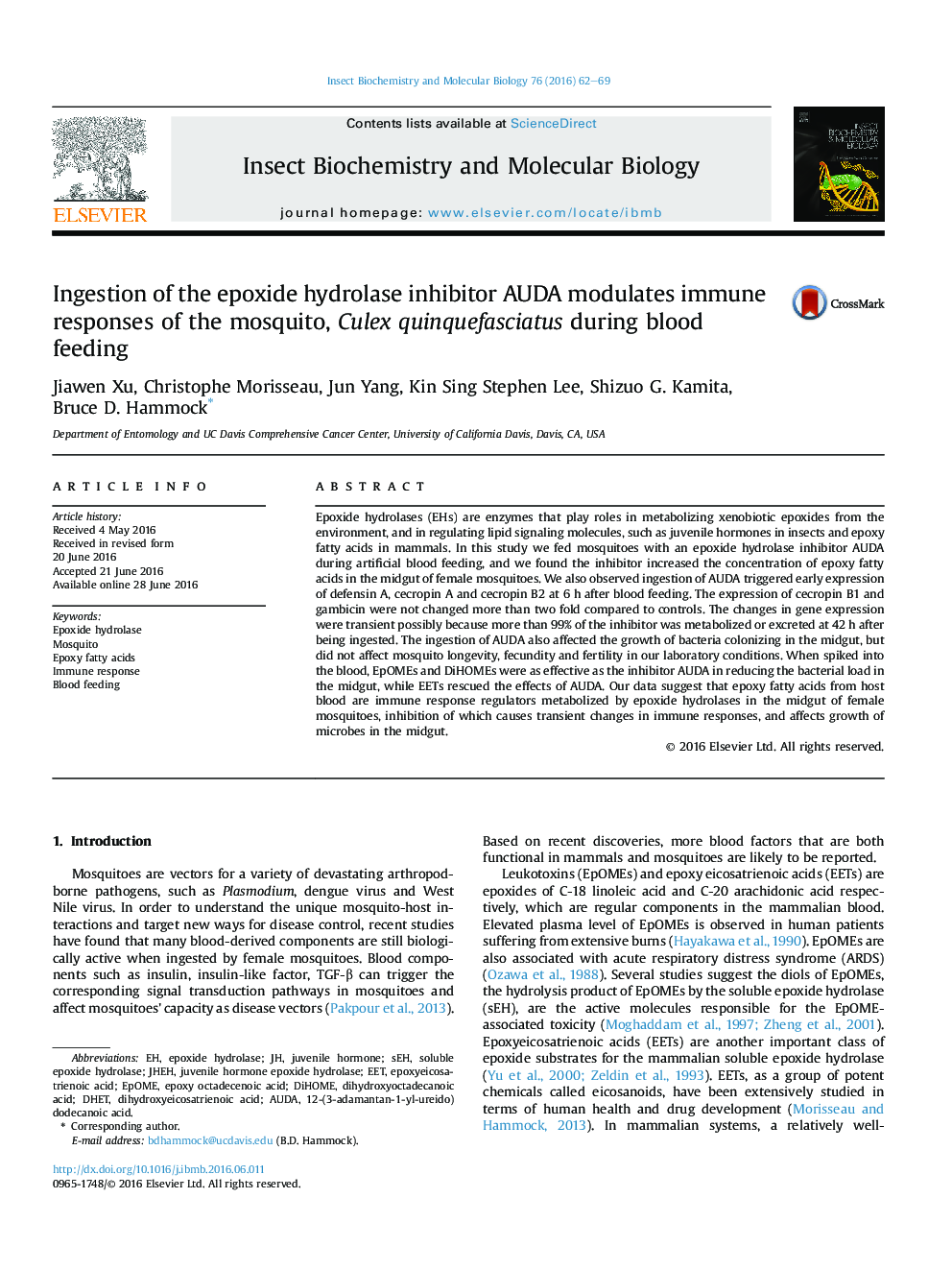| کد مقاله | کد نشریه | سال انتشار | مقاله انگلیسی | نسخه تمام متن |
|---|---|---|---|---|
| 1981952 | 1539476 | 2016 | 8 صفحه PDF | دانلود رایگان |
• Ingestion of an EH inhibitor (AUDA) increased the concentration of epoxy fatty acids in the midgut of the mosquito.
• The ingestion also triggered a transient expression of several immune genes.
• The growth of midgut bacteria was affected by the ingestion of AUDA.
Epoxide hydrolases (EHs) are enzymes that play roles in metabolizing xenobiotic epoxides from the environment, and in regulating lipid signaling molecules, such as juvenile hormones in insects and epoxy fatty acids in mammals. In this study we fed mosquitoes with an epoxide hydrolase inhibitor AUDA during artificial blood feeding, and we found the inhibitor increased the concentration of epoxy fatty acids in the midgut of female mosquitoes. We also observed ingestion of AUDA triggered early expression of defensin A, cecropin A and cecropin B2 at 6 h after blood feeding. The expression of cecropin B1 and gambicin were not changed more than two fold compared to controls. The changes in gene expression were transient possibly because more than 99% of the inhibitor was metabolized or excreted at 42 h after being ingested. The ingestion of AUDA also affected the growth of bacteria colonizing in the midgut, but did not affect mosquito longevity, fecundity and fertility in our laboratory conditions. When spiked into the blood, EpOMEs and DiHOMEs were as effective as the inhibitor AUDA in reducing the bacterial load in the midgut, while EETs rescued the effects of AUDA. Our data suggest that epoxy fatty acids from host blood are immune response regulators metabolized by epoxide hydrolases in the midgut of female mosquitoes, inhibition of which causes transient changes in immune responses, and affects growth of microbes in the midgut.
Figure optionsDownload high-quality image (149 K)Download as PowerPoint slide
Journal: Insect Biochemistry and Molecular Biology - Volume 76, September 2016, Pages 62–69
